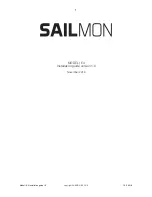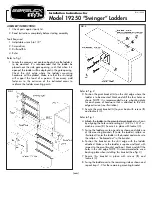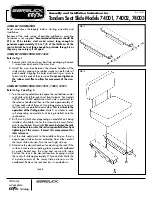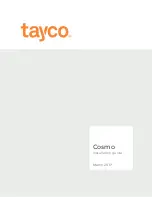
40
3
SAFETY PRECAUTIONS
id.:
DB 460 REV. 00 02/01/2015
- In order to prevent burns caused by boiling water or steam escaping while checking or draining the coolant,
wait for the water to cool down to a temperature such that you can touch the radiator cap without burning your
hand. Even when the coolant has cooled down, loosen the cap gradually to allow the pressure in the radiator
to drop before removing the cap completely.
- In order to prevent burns while checking or draining the oil, wait for the oil to cool down to a temperature such
that you can touch the drain cap without burning your hand. Even when the oil has cooled down, loosen the
drain cap gradually to allow the internal pressure to drop before removing the plug completely.
- Do not touch the silencer immediately after turning off the engine, as it is extremely hot and may cause
serious injury.
Do not work with the vehicle in closed places unless equipped with a suitable combustion gas suction and
exhaust system.
Good ventilation is very important for vehicle operation. Carbon monoxide emission from the engine’s exhaust
may moreover cause suffocation in closed areas.
- Engine combustion smoke can be very dangerous and/or lethal for the human body if directly and continuously
inhaled.
- If you need to work in closed environments, take all possible precautions to ensure circulation of fresh air and
protect the airways by wearing a suitable mask.
- Avoid inhaling or contact with the battery acids which are highly toxic and cause serious burns.
- Be careful not to come into contact with cement as perspiration and other body fl uids cause an irritating
alkaline reaction and in some people allergic reactions. Use protective gloves and goggles.
3.2.11 RISK OF BURNS
3.2.12 VENTILATION
3.2.13 INTOXICATION
The hydraulic system is pressurised when the engine is running and may remain under pressure even after
the engine has been turned off.
Hot hydraulic oil causes serious burns.
- Wait for the oil to cool down before disconnecting the pipes. Pressurised fl uid leaks may be invisible.
- DO NOT
use your hands to check for leaks. Fluid leakage even from a very small hole may have suffi cient
force to penetrate the skin.
If you need to check for leaks, use a piece of cardboard or wood.
Wear gloves to protect your hands from any oil splashes.
DO NOT
attempt to repair or tighten fl exible hoses
or hydraulic unions when the hydraulic system of the vehicle is under pressure.
- TURN OFF
the engine, discharge all the cylinders and release the pressure.
- Keep your face and hands away from loosened unions while you are checking the effi ciency of the hydraulic
system. Wear protective goggles as the jet of pressurised hydraulic oil may penetrate your skin and cause
permanent injury to your eyes.
- If any fl uid or oil leaks are found, immediately stop the vehicle and make the necessary repairs.
- Turn off the engine and check that all the hydraulic controls are in neutral position before removing covers,
unions, pipes, caps, etc.
3.2.10 HOT AND PRESSURISED FLUIDS
Summary of Contents for DB 460
Page 2: ......
Page 4: ......
Page 6: ......
Page 22: ......
Page 48: ...48 3 SAFETY PRECAUTIONS id DB 460 REV 00 02 01 2015 VEHICLE EXTERIOR ...
Page 110: ......
Page 154: ......
Page 166: ...166 TECHNICAL ANNEXES DB 460 REV 00 02 01 2015 id HYDRAULIC DIAGRAM ...
Page 168: ......
Page 252: ... 2012 Perkins Engines Company Limited All Rights Reserved ...
















































